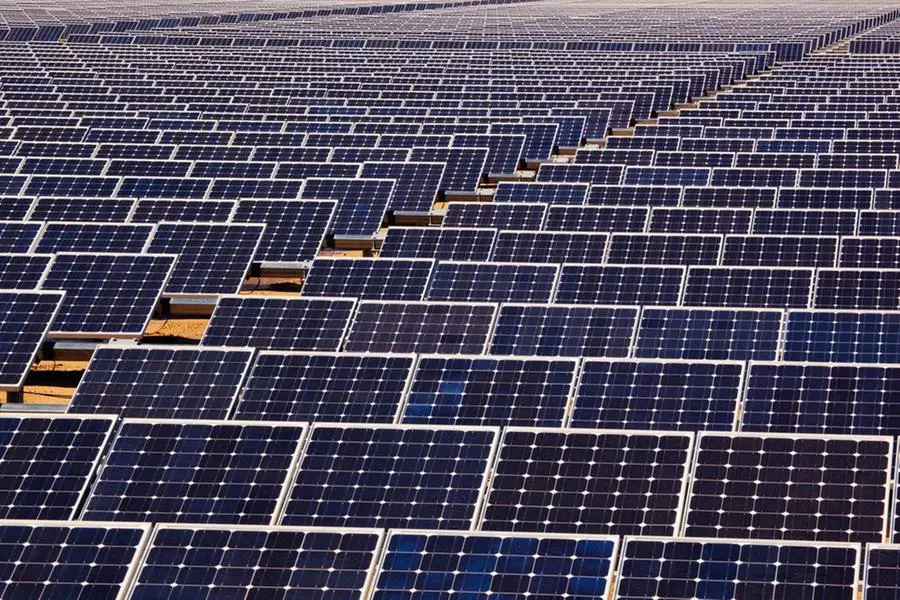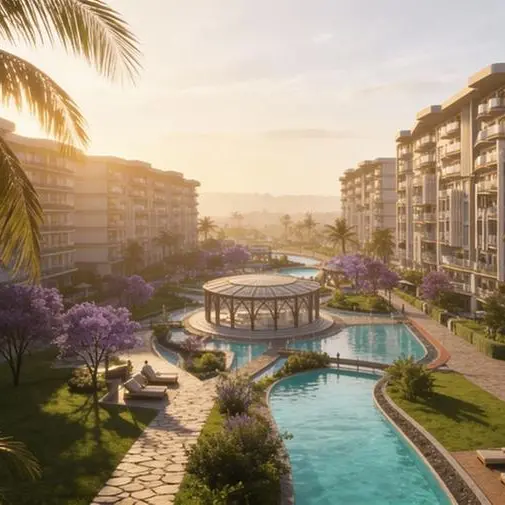PHOTO
(TAP/Semia Boukhatem)- Tunisia boasts 3,000 hours of sunshine per year with peak sun hours (3, 400/ year) in the Gulf of Gabès (southeastern Tunisia)- a manna for a country striving for years now to contain and reduce its energy deficit which stands at 55% in 2019 against 20% in 2010.
The photovoltaic solar power, a well-mastered technology in Tunisia, can be tapped into to meet ambitious goals related to renewable energy use, said Director of renewable energy at the National Agency for Energy Conservation (French: ANME) Nefaa Baccari.
Projects with 1000 MW capacity
The photovoltaic solar power, a well-mastered technology in Tunisia, can be tapped into to meet ambitious goals related to renewable energy use, said Director of renewable energy at the National Agency for Energy Conservation (French: ANME) Nefaa Baccari.
Projects with 1000 MW capacity
The photovoltaic solar power is among the most developed renewables in Tunisia with projects underway totalling 1,000 MW.
The ANME approved a first tranche of projects, that is five solar power plants with an overall capacity of 500 MW, Baccari further said.
"These solar power plants will be set up in Tozeur (southern Tunisia), Sidi Bouzid (50 MW), Kairouan (100 MW ), Gafsa (100 MW) and Tataouine (200 MW), he furthe said.
Tariffs among the lowest in Africa
The proposed tariff as part of Tataouine project, that is 72 millimes/kilowatt hour is the "lowest ever in Africa" and among the lowest in the world.
Proposed tarrifs as part of these projects (80 millimes on average) are intended to curb production and subsidisation costs. The aim is also to reduce natural gas imports by 5%.
The country eyes a total power output of 400 MW when it comes to photovoltaic solar power generation as part of the the authorisation system, the official said.
With respect to industrialists who eye self-production, 210 projects connected to the medium-voltage grid with a total capacity of 36 MW were authorised.
Public institutions, target of energy strategy
Tunisia started the new energy transition programme in 2021. This programme provides for putting in place photovoltaic solar panels in buildings of ministries and public sector establishments, Baccari said. The ultimate goal is a capacity of 30 MW photovoltaic energy in 250 public establishments and a 20% drop in electricity bills.
The project is co-funded by Germany's Development Bank (KfW).
Solar plants for all houses
The ANME approved a first tranche of projects, that is five solar power plants with an overall capacity of 500 MW, Baccari further said.
"These solar power plants will be set up in Tozeur (southern Tunisia), Sidi Bouzid (50 MW), Kairouan (100 MW ), Gafsa (100 MW) and Tataouine (200 MW), he furthe said.
Tariffs among the lowest in Africa
The proposed tariff as part of Tataouine project, that is 72 millimes/kilowatt hour is the "lowest ever in Africa" and among the lowest in the world.
Proposed tarrifs as part of these projects (80 millimes on average) are intended to curb production and subsidisation costs. The aim is also to reduce natural gas imports by 5%.
The country eyes a total power output of 400 MW when it comes to photovoltaic solar power generation as part of the the authorisation system, the official said.
With respect to industrialists who eye self-production, 210 projects connected to the medium-voltage grid with a total capacity of 36 MW were authorised.
Public institutions, target of energy strategy
Tunisia started the new energy transition programme in 2021. This programme provides for putting in place photovoltaic solar panels in buildings of ministries and public sector establishments, Baccari said. The ultimate goal is a capacity of 30 MW photovoltaic energy in 250 public establishments and a 20% drop in electricity bills.
The project is co-funded by Germany's Development Bank (KfW).
Solar plants for all houses
New projects are being finalised and will launch this year, including two geared towards households consuming 1,200 KWh/year to 1,800 KWh/year and less than 1200 KWh/year, respectively.
These projects will launch as part of a pilot action in Tozeur. 4,000 PV panels will be installed by 2022., the official further told TAP.
The project, once rolled out over five years, will help 800,000 Tunisian households save up to 41 million dinars. It will generate 53 MW of photovoltaic solar power and result in CO2 emissions dropping by 0.88 million tonnes by 2044.
These projects will launch as part of a pilot action in Tozeur. 4,000 PV panels will be installed by 2022., the official further told TAP.
The project, once rolled out over five years, will help 800,000 Tunisian households save up to 41 million dinars. It will generate 53 MW of photovoltaic solar power and result in CO2 emissions dropping by 0.88 million tonnes by 2044.
© Tap 2021 Provided by SyndiGate Media Inc. (Syndigate.info).
Disclaimer: The content of this article is syndicated or provided to this website from an external third party provider. We are not responsible for, and do not control, such external websites, entities, applications or media publishers. The body of the text is provided on an “as is” and “as available” basis and has not been edited in any way. Neither we nor our affiliates guarantee the accuracy of or endorse the views or opinions expressed in this article. Read our full disclaimer policy here.





















